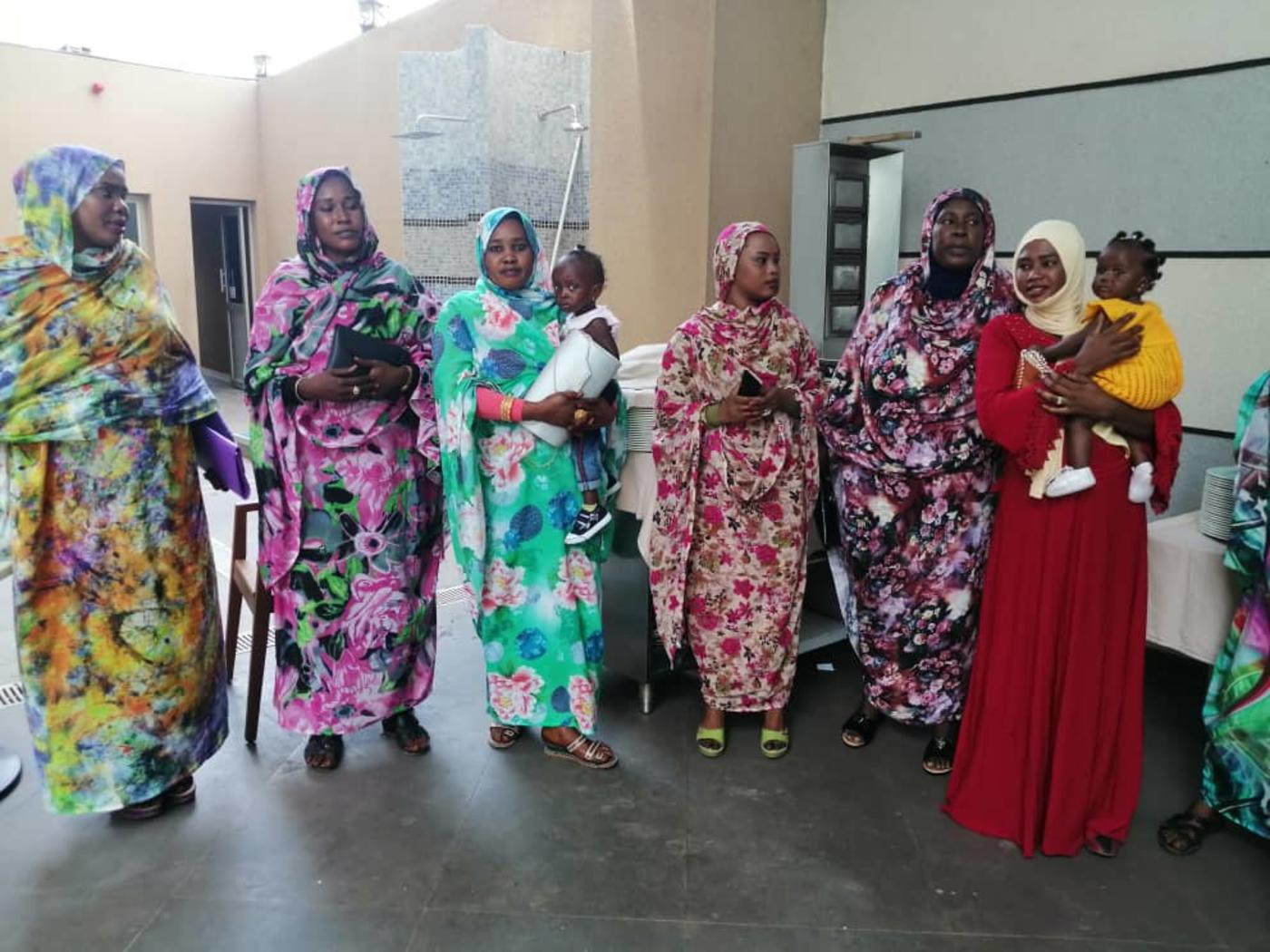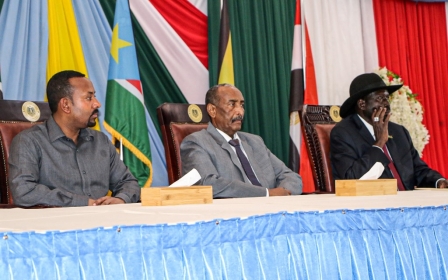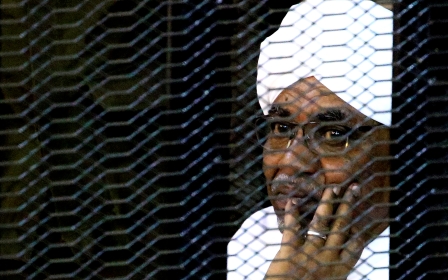Sudan peace talks: Government and South Kordofan rebels claim breakthrough

Negotiators for Sudan's transitional government and one of the country's largest rebel groups claimed a breakthrough on Friday after reaching an agreement on the timetable and agenda for peace talks in Juba, South Sudan.
The agreement between the government and the South Kordofan-based Sudan People's Liberation Movement-North (SPLM-N) commits both sides to discussing political issues before security issues in talks now set to begin on Saturday.
The two sides have never previously been able to agree on an agenda in 22 rounds of preliminary talks aimed at ending a conflict that has been going on since 2011.
The government had always prioritised security arrangements in previous talks, while the SPLM-N had pushed for humanitarian concerns to be addressed. But the agreement commits both sides to discussing political issues first, then humanitarian issues, and finally security issues.
'We are all on one front'
Stay informed with MEE's newsletters
Sign up to get the latest alerts, insights and analysis, starting with Turkey Unpacked
Speaking to journalists, Mohamed Hassan Altaishi, a member of the Sudanese sovereign council, said that the two sides will sign a declaration of principles before talks begin on Saturday.
"We are happy to prove that we are all on one front, the armed and civil parties in Sudan, especially after the revolution. So we overcame the problem of setting the agenda, and we will sign a declaration of principles tomorrow in order to begin direct talks. I believe that we can conclude the majority of the agenda in a very short time," he said.
Aljak Mahmoud, a spokesperson for the SPLM-N, described the agreement as a first step towards peace.
Who are Sudan's rebel groups?
+ Show - HideSRF: Sudanese Revolutionary Front
Rebel groups fighting in Darfur, Blue Nile State and South Kordofan formed the SRF in 2011 to unite efforts in talks with the government and have advocated for greater representation for minorities and marginalised communities during Sudan's post-Bashir transition
SPLM: Sudan People's Liberation Movement
Founded by the iconic rebel leader John Garang, who aimed for a democratic Sudan, the SPLM fought a war against the Sudanese state that eventually led to the secession of South Sudan in 2011. It is now South Sudan's ruling party, led by President Salva Kiir.
SPLM/N: Sudan People's Liberation Movement - North (Agar faction)
Garang's allies formed a northern branch of the SPLM after South Sudan's independence to focus on establishing the SPLM's vision of equality in Sudan. In 2011, SPLM-N chairman Malik Agar was removed by Bashir from his elected position as governor Blue Nile state and launched a rebellion that saw him take control of part of the region.
SPLM/N (Alhilu faction)
The group's vice-chair Abdel Aziz Alhilu splintered to create a faction focused on the grievances of South Kordofan, which borders South Sudan, and has become the most influential Sudanese rebel faction, fighting from the Nuba mountains and controlling large amounts of territory.
SLA/AW: Sudan Liberation Army - Abdul Wahid faction
In 2001 leaders from different indigenous Darfuri communities formed the Sudan Liberation Army to fight Bashir's government, claiming they represented Sudan's marginalised communities. The government was accused of carrying out genocide in its response, which used militias known as the Janjaweed to attack Darfuri communities.
Ethnic Fur, Khartoum-educated lawyer Abdul Wahid was the original chairman and now leads his own faction after the group splintered. Since 2016, Sudanese forces have been trying to clear SLA-AW fighters from the Jebel Marra area of Darfur.
SLA/MM: Sudan Liberation Army - Minni Minnawi faction
SLA commander Minni Minnawi, from the Zaghawa herder community, split from Abdul Wahid and formed his own faction. They have had very little presence in Darfur in recent years, basing themselves in neighbouring Libya.
JEM: Justice and Equality Movement
Founded based on grievances about inequality of power in Sudan and with more religious affiliation than other rebel groups, including leaders who were former members of the Islamist movement, JEM eventually became the most powerful Darfuri group. In 2008 it attempted to overthrow the government by storming Khartoum, only halted when they clashed with Sudanese forces in the capital's sister city Omdurman.
"We consider what happened today a real breakthrough as we were stuck at this point for the last eight years and in 22 rounds of talks with the previous government in Sudan," he said.
Tut Galtuak, the head of the South Sudanese mediation team, welcomed the agreement and said it would pave the way for peace in the restive Nuba Mountains region of southwestern Sudan.
"We have exerted efforts but the seriousness of the peace partners in these talks is the cornerstone of what we achieved today and that will pave the way for finalising the entire peace process," he said.
Chanting for peace
The announcement at the Pyramid Hotel prompted celebrations by hundreds of Sudanese women currently living as refugees in South Sudan who have been attending the location of the talks since Monday.
The women have been singing and chanting for peace, as well as making food for the participants and encouraging them to make a peace deal quickly.
"We are making this celebration in order to encourage the leaders of the government as well as the rebels to end the war, conclude the peace, and let us return to our original areas which we are missing a lot," Afaf, a 26-year-old refugee from the Nuba Mountains, told Middle East Eye.
Belgis, who is from Nyala city in South Darfur state, said she had fled her home five years ago because of security concerns and financial hardship.
"We suffered a lot in Darfur, so we left our home five years ago, me and my small family, and we are living here in Juba," she said.
The women were addressed by Mohamed Hamdan Dagalo, the deputy chair of Sudan's sovereign council also known as Hemeti, who promised to make peace and let the refugees return to Sudan.
Hemeti also offered help to the refugees with issues while they remain living in South Sudan, including with work permits and residency fees.
"We are happy to meet you here in Juba - our second country - and we promise to meet you in Sudan after we make peace. But, for the time being, we will also help you solve your problems here in South Sudan," he said.
The SPLM-N, led by Abdul Aziz Alhilu, is one of the strongest rebel factions in Sudan. On Wednesday, they walked out of talks complaining of continuous attacks on their forces in the Nuba Mountains.
But the SPLM-N returned to the negotiating table on Thursday after the government declared a ceasefire.
Sudan's transitional government is also engaged in separate peace talks with another coalition of rebel groups, the Sudanese Revolutionary Front, representing fighters in areas including Darfur, Blue Nile and South Kordofan.
Middle East Eye delivers independent and unrivalled coverage and analysis of the Middle East, North Africa and beyond. To learn more about republishing this content and the associated fees, please fill out this form. More about MEE can be found here.





